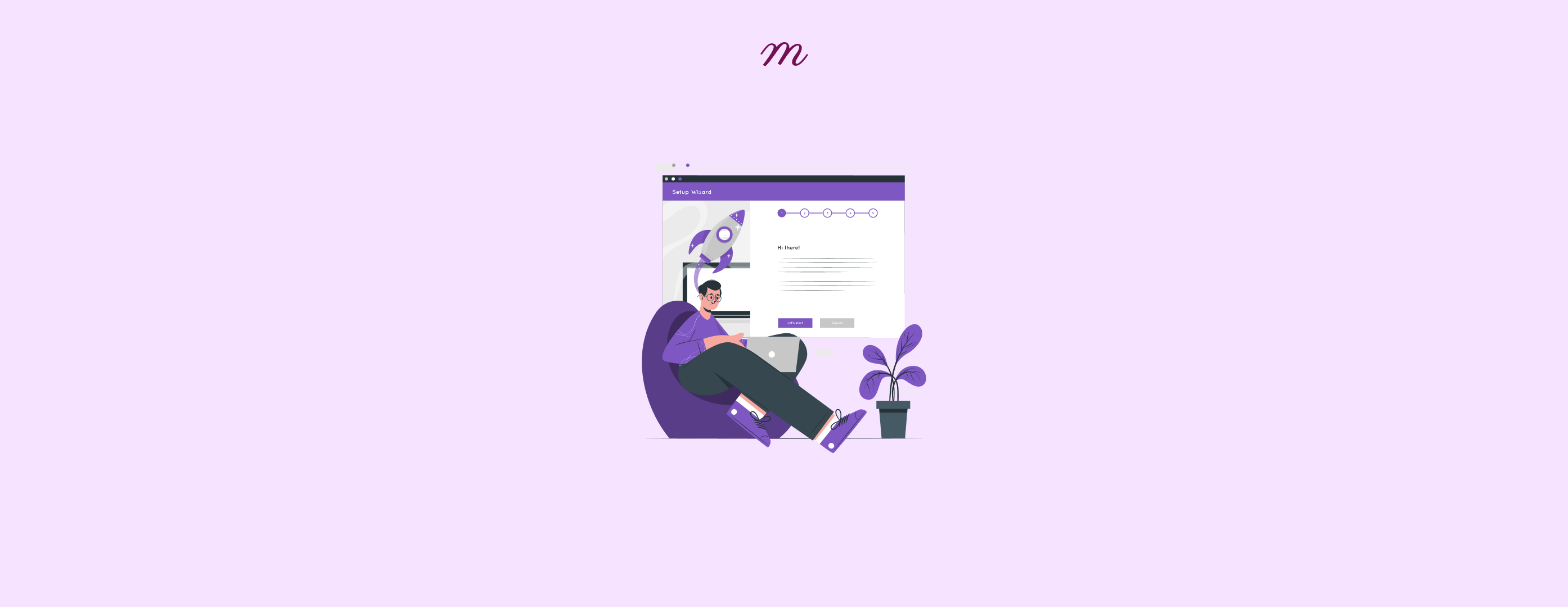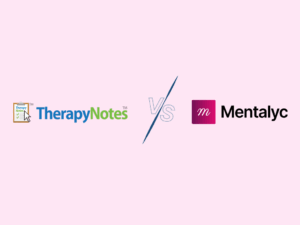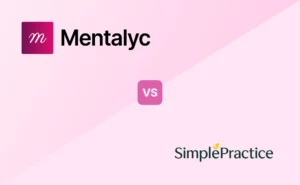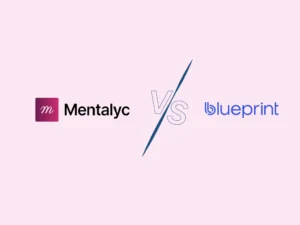So… What Are Psychiatric Nursing Notes?
Basically, psychiatric nursing notes stand as the quintessential instrument you’ll ever have as a proficient practitioner, enabling you to ascend to greatness in your field. No worries, we know you’re confused and we got you covered! Whether you’re a seasoned psychiatric nurse or just starting your career, this comprehensive guide is designed to enhance your skills and improve patient outcomes. Embark on this article till its very conclusion, and you shall emerge as a consummate maestro of psychiatric nursing notes, exuding an aura of mastery and expertise.
Answering The What: Let’s Understand The Big Picture
Nursing psychiatric notes represent the documented records meticulously maintained by nurses during their interactions with each individual under their care. When a patient undergoes a mental health evaluation or is admitted to a psychiatric unit, nurses diligently peruse the psychiatric notes to attain a comprehensive understanding of the patient’s history, symptoms, and current circumstances. This comprehensive grasp aids in formulating an accurate assessment of the patient’s mental well-being. The crucial role of inpatient psychiatric nurses lies in their capacity as discerning gatherers of information, enabling psychiatrists to arrive at informed decisions regarding medication.
Moreover, the meticulous notes maintained by nurses serve to facilitate seamless communication amongst healthcare providers and staff members, while also substantiating the imperative medical requirement for a patient’s treatment, thereby ensuring the most up-to-date and comprehensive medical records. That is, leveraging the information gleaned from the psychiatric notes, nurses collaboratively devise a tailored care plan for the patient in conjunction with the broader healthcare team, thus fostering a cohesive and coordinated approach to patient care.
For psychiatric nursing documentation, tools that facilitate structured, collaborative note-taking can enhance care coordination and ensure up-to-date patient records. Platforms like Mentalyc can support nursing staff in streamlining documentation for more efficient team communication and continuity in patient care.
Answering The Why: The Importance of Psychiatric Nursing Notes
Nurses bear the responsibility of upholding the accuracy, completeness, and confidentiality of psychiatric notes in accordance with legal and ethical guidelines. Why? Because such notes may be utilized in legal proceedings, such as court cases or disability claims. Wait, that’s not all! Let’s elaborate.
Well-written psych nursing notes are crucial for several reasons:
- Communication and Collaboration: Nurse notes serve as a primary mode of communication between healthcare professionals, ensuring seamless collaboration in patient care.
- Legal Documentation: Accurate and detailed nurse notes provide legal protection, as they serve as evidence of the care provided and can be used in legal proceedings, if necessary.
- Continuity of Care: Well-written nurse notes facilitate continuity of care by providing a comprehensive overview of the patient’s progress, enabling other healthcare providers to make informed decisions.
That’s why psychiatric nursing notes should, ideally, strive to capture an essence of precision, brevity, and readability, thereby providing a comprehensive view of the patient’s state, encompassing their diagnosis, symptoms, treatment response, and any other pertinent details.
What Constitutes a Good Psychiatric Nursing Note?
In essence, a nursing note entails documenting the patient’s care and their corresponding reactions. When it comes to psychiatric nursing, adhering to a standardized format and writing with precision, clarity, and comprehensiveness is crucial. As an illustrative example, a template for a psychiatric note might encompass the following components:
- Patient’s identification particulars, including name, ID number, patient’s date of birth, age, and gender
- Date of admission
- Present mental condition
- Adherence to prescribed medication
- Any side effects or allergic reactions caused by the medication
- Notable changes in the patient’s medical status
- Nursing intervention provided
- Goals addressed during the intervention
- Patient’s response to the intervention
- Laboratory tests that have been ordered
- Vital signs recorded
- Diagnosis made
- Newly prescribed medications, if applicable
- Explanation for any modifications in medication, if applicable
- Date and signature for authentication
Still Confused? Let’s Delve Deeper: Psychiatric Nursing Notes Must-Haves
Crafting comprehensive notes is crucial, but brevity and relevance are key. Here are ten vital elements that psychiatrists yearn to discover within a nurse’s note. These fragments should weave their way into your notes, painting a vivid picture of the patient’s journey.
- Patient Overview Capture the essence of the patient’s well-being: have they embarked upon a path of improvement, stagnation, or regression? Unveil significant shifts in their social dynamics or current circumstances. Does their medication bear fruits of effectiveness? Chronicle their progress or any unfortunate steps backward.
- Symptom Status Unveil the current status of the patient’s target symptoms—the compass by which treatment efficacy is navigated. Are these symptoms still present, or have they embarked on a journey toward amelioration or exacerbation?
- Behaviors Etch into words the patient’s behavior during your watch, their participation in activities, adherence to rules, medication compliance, and appetite. Shed light on any disruptive or aggressive conduct. These actions provide valuable clues to the psychiatrist, uncovering the patient’s mental status and progression.
- Medication Side Effects Illuminate any subtle or not-so-subtle side effects the patient may be experiencing from their medication. Unmasking these side effects becomes paramount as it alerts the psychiatrist to potential risks.
- Mental Status Exam A mental status exam acts as a window into the patient’s psyche, empowering nurses to employ their perceptive prowess. Its purpose: to unveil the patient’s present mental state and trajectory, empowering psychiatrists and other healthcare providers to make enlightened decisions. While a detailed mental status exam may not be necessary, glimpses into key areas prove invaluable. Reflect upon the following: is the patient anxious? agitated? How do they present themselves? Are there any signs of psychosis? How can you describe their mood?
- Special Observations Certain patients require distinctive documentation. For instance, those subjected to restraints or seclusion entail specific recording requisites, as both interventions harbor health hazards and the peril of legal repercussions if misused. Seclusion or restraint documentation typically includes the precipitating behaviors or circumstances leading to their use, the patient’s conduct during seclusion or restraint, interventions rendered to the patient, assessment of physical injuries, etc.
- Vital Signs Vital signs may encompass: Blood pressure Pulse Temperature Respiration Additionally, document visual acuity, as well as the patient’s height, weight, and body mass index.
- Nursing Interventions Nursing interventions intertwine with the patient’s treatment plan. Delve into the interventions you administered and the patient’s response. Did you dispense medications while vigilantly observing their effects? If so, chronicle the patient’s compliance and their reaction to the medication. Should a therapeutic interaction take place, evaluate the patient’s engagement and progress toward objectives and goals. Record their overall response to the therapeutic intervention.
- Level of Care Venture to suggest the patient’s required level of care, be it continued hospitalization or outpatient treatment. The nursing documentation should substantiate the medical necessity of the recommended treatment. The patient’s insurance provider seeks evidence justifying inpatient or outpatient care, and your notes shall equip your facility for any ensuing treatment review.
- Updated Treatment Plan In your notes, align the objectives outlined in the patient’s treatment plan with the milestones you have addressed. As mentioned earlier, depict the interventions employed to achieve these goals and the patient’s response to them.
Unveiling The Secrets to Composing Impeccable Psychiatric Nursing Notes!
Revolutionize Your Notes with these Tips:
- Kick off your notes with essential details like the patient’s name, age, and date of birth, ensuring completeness and clarity.
- Banish the Lingo: Let clarity reign supreme by ditching jargon and abbreviations, opting for plain language that everyone can comprehend.
- Keep your sentences concise, and crystal clear, painting a vivid picture of the patient’s condition.
- Objectivity: Employ objective language to depict the patient’s behaviors, emotions, and observations, scrapping ambiguity for explicit details that foster comprehension.
- Adhere to ethical and legal principles safeguarding patient privacy and upholding the utmost confidentiality.
- Familiarize yourself with standardized psychiatric lingo and wield it consistently to ensure seamless communication and understanding amongst healthcare professionals.
- Seamlessly document patient encounters while memories are fresh, delivering concise yet comprehensive information. Exclude unnecessary tidbits that add no value to the patient’s care.
- Use templates: Structure your notes in a logical fashion, employing some of the available templates: initial assessment notes, progress notes (SOAP template mostly used, DAP, PIE, BIRP, etc.), and discharge summary notes.
Psychiatric Nursing Note Example
Examination: X, XX appears friendly, distracted, and disheveled today, but less intrusive. Her speech is less pressured or rapid, with a normal volume. Her mood appears moderately elevated, presenting as manic. X, XX is intrusive and irritable, displaying a labile mood. Her thinking is tangential, and she exhibits inappropriate smiling. Her associations are intact and increasingly logical. X, XX convincingly denies any suicidal or homicidal ideation. Her insight into problems is fair, and her judgment appears to be fair as well. There are no signs of anxiety, but she demonstrates a short attention span.
Vital Signs: Vital signs were taken earlier today: Sitting blood pressure is 108/62. Sitting pulse rate is 77. Respiratory rate is 21 per minute. Temperature is 98+ degrees F. Height is 5′ 5″ (165.1 cm). Weight is 135 lbs. (61.2 Kg). BMI is 22.5.
Nursing Interventions: Medication was administered to X, XX, with monitoring and recording of compliance, symptoms, and possible side effects as appropriate.
Response to Medication: Positive. Furthermore, X, XX was engaged and encouraged to participate in activities, showing fair comprehension as evidenced by her demonstrated skills. She is making an effort not to interrupt her peers. Emotional support and encouragement were provided to X, XX, and her response to this intervention appeared to be favorable.
Diagnoses: The following diagnoses are based on the available information and may be subject to change with additional information.
- Bipolar 1, Current or most recent episode: Manic, Severe with Psychotic Features (Active)
- Benign Hypertension (Active)
Electronically Signed
By: Zeina, RN
On: 4/28/2023 5:19 PM
To ensure your psychiatric nursing notes are thorough and accurate, explore tools that can simplify documentation, streamline formatting, and enhance clarity. A well-organized note helps improve patient care and minimizes administrative overhead. Learn more about how to optimize your note-taking process.
Conclusion: Streamline Psychiatric Nursing Documentation with Mentalyc
Understanding the significance of psychiatric nursing notes, as elucidated in this blog, can assist nurses in honing their abilities. A well-crafted note strikes a harmonious balance between various objectives and writing styles. Proficient writing entails surmounting practical obstacles like time management, selecting pertinent information, and maintaining conciseness. Employing the aforementioned general suggestions and adhering to note-writing etiquette can prove invaluable in conquering these challenges. No matter the circumstance, remember that Mentalyc is always by your side, ready to assist you in generating precise and immediate psychiatric progress notes. Rest assured, we have everything you need taken care of!
References:
- American Psychiatric Nurses Association (APNA) – Psychiatric Nursing Resources: https://www.apna.org/
- “Psychiatric Nursing Documentation: The Nuts and Bolts of Note Writing” – Journal of the American Psychiatric Nurses Association
- “Psychiatric Mental Health Nursing: Concepts of Care in Evidence-Based Practice” – Townsend, M.C.
- “Nursing Documentation in Aged Care: A Guide to Practice” – West, P., & Griffiths, R.
- “Documentation for Rehabilitation: A Guide to Clinical Decision Making in Physical Therapy” – Peterson, M.L., & Liebenson, C.
- “Legal and Ethical Issues for Health Professionals” – McParland, M., & Scott, G.
Why other mental health professionals love Mentalyc

“By the end of the day, usually by the end of the session, I have my documentation done. I have a thorough, comprehensive note … It’s just saving me hours every week.”
CDCII

“It’s so quick and easy to do notes now … I used to stay late two hours to finish my notes. Now it’s a breeze.”
Licensed Professional Counselor

“Having Mentalyc take away some of the work from me has allowed me to be more present when I’m in session with clients … it took a lot of pressure off.”
LPC

“A lot of my clients love the functionality where I can send them a summary of what we addressed during the session, and they find it very helpful and enlightening.”
Therapist







